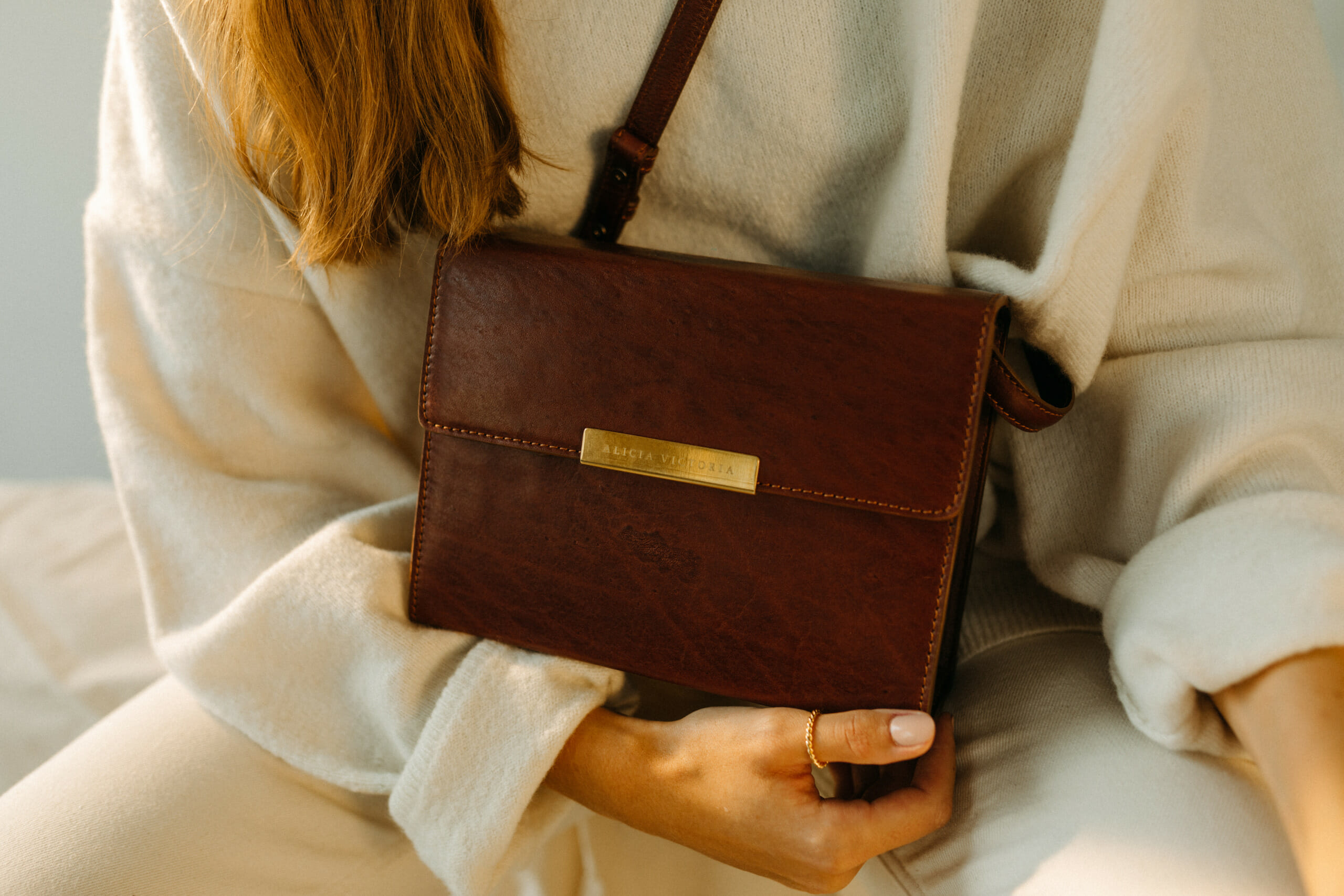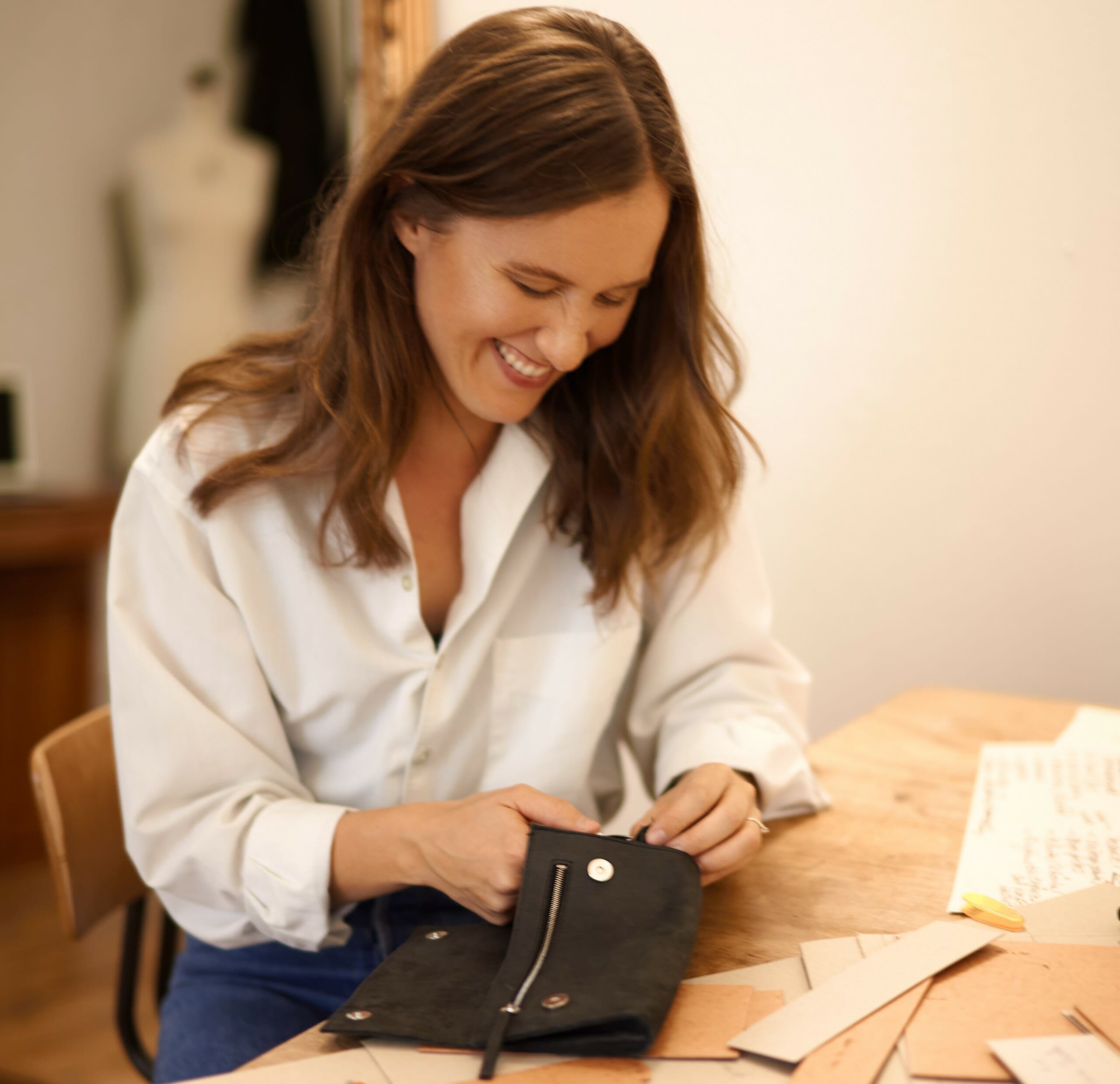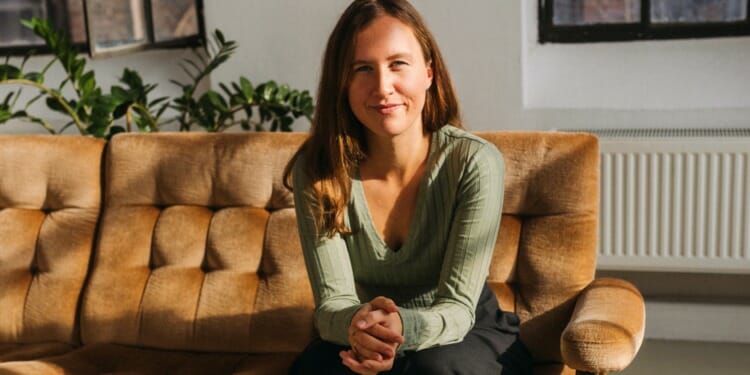Alicia Linz is the founder of Alicia Victoria, an accessories brand from Munich specializing in sustainable leather. By using the hides and flawed cutoffs from ecological hunters and farmers, Alicia is helping tackle the issue of pervasive waste in the leather industry, which is exacerbated by the lack of transparency and regulations for leather goods. With her holistic approach, Alicia sheds light on the value of organic and regenerative farming for humans, animals, and the environment.
What made you aware of the issues in the leather industry and how did you educate yourself on possible solutions?
I started working on the concept a little more than four years ago. From a conversation I had with a friend, I learned that the hides of animals that were legally hunted in Germany were not put to use and just discarded, so I did my own research and the further I dug into the details, the more interested I became. We have several problems when it comes to the leather industry in Germany. Firstly, the hides from hunters and farmers are not always put to use, and those that are aren’t used in their entirety. There’s a tremendous amount of waste.
A grown cow produces about five square meters of leather hide, but most leather producers will use only a small portion of that, which was really shocking for me. I’ve been in the fashion industry for more than 12 years. I trained as a seamstress and pattern maker, and I studied Fashion and Design Management in Hamburg, but the intricacies of leather were completely new to me. So this conversation I had with my friend, who is a hunter, was the start of my education, and my research led me to connect with the ecological hunters and sustainable farmers in Germany.
The second major problem is that there is no standard for leather, so producers don’t have to show where their product comes from, from what animal, or how it was made, and consumers have no way of knowing. The lack of transparency in the leather industry conceals a lot of terrible things behind the scenes.

How do you source your materials and what do you look for in the people and producers that you work with?
For me factory farming is not an option. To be sure that the people I work with are not involved in factory farming, I pick up the raw material myself and I have personal contact with all the farmers and ecological hunters I work with. It’s impossible to be sustainable without knowing your value chain, so I’m very on top of it.
I work with the Ecological Hunting Association of Brandenburg-Berlin, which is a registered association tasked with the conservation of forest land. One way they do this is by maintaining animal populations and allowing certain species to be hunted at certain times of the year. Everything is regulated to preserve an ecological balance. It’s very important to them that the animal is used in its entirety, so when I came to them with the solution for their hides, they welcomed me with open arms.
Instead of designs, you have one model that comes in different kinds of leather that vary according to their “flaws”. Can you explain the thinking behind this approach?
We have three different categories: the first is flawless leather; the second has some small flaws like mosquito bites or small bumps; the third type is the most imperfect, it has some holes and scars. By using it, we want to show that the whole hide is worth working with. Right now we work with cow and deer hides and are developing a few other products for next year.
Were you ever concerned that you would have difficulties selling a product that you readily marketed as “flawed” in some way? Has it been difficult to shift people’s mindsets away from seeing leather as this perfect material to something more unique, and “drawn from the life of the animal” as you say?
I knew that it would take time and patience, but since we have these three categories, we can satisfy different types of customers. Of course at the beginning it was difficult to explain my idea to others, before I even had the prototype or anything to show for it. Many people thought it was a bad idea because they couldn’t imagine that you could use imperfect leather to make a high-quality product. But now that I actually have the product, people understand.

With the adoption of the UN 2030 Agenda and the 17 Sustainable Development Goals in 2015, sustainability is an essential guiding principle for businesses everywhere. What were some of the key learnings from your own path to sustainability and what are some of the future challenges you anticipate as the fashion industry responds to the greater demand for sustainable products.
Even if we have many interesting and sustainable concepts, if people continue to consume too much, we will never be able to solve the problems we are currently facing. That’s the main thing for me, to help shift the mindset of consumers to invest in items like leather that are more expensive but that last longer. I have some leather bags from my grandmother that are more than 30 years old but are still in perfect condition. If you look after things well, they can last for more than one generation.
I also want to show consumers that a lot of people are involved in creating something beautiful and long lasting – and that factors into the price. It’s important to have transparency across the value chain in order to build trust between producers and the consumer, to show them what it takes to create the final product. I think that’s the goal for the future, more transparency in the fashion industry.
Editor’s Note: The opinions expressed here by Impakter.com columnists are their own, not those of Impakter.com. — In the Featured Photo: Alicia Linz Featured Photo Credit: Alicia Linz










